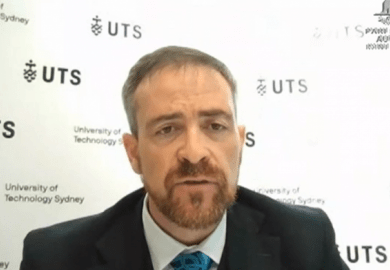Australia’s government has been accused of “McCarthyism” after a Senate estimates committee heard that the research funding agency was “keeping files” on academics.
The Australian Research Council (ARC) has changed its processes to require “more disclosures” from individual academics, including details about their foreign affiliations, when they apply for research grants.
Separately, the agency undertakes a “scan for sensitivities” each time it issues a “batch” of recommendations for grant funding. The sensitivity scans, developed in consultation with security agencies, include checks of academics’ personal disclosures.
The ARC also looks for mentions of academics and their institutions in sanctions lists, newspaper articles and the China Defence Universities Tracker. The tracker, developed in 2019 by Canberra thinktank the Australian Strategic Policy Institute, lists scores of Chinese institutions suspected of links with Beijing’s defence and security establishments.
Potential concerns identified in the scans are referred to security agencies, with the education minister – who approves ARC grants – advised if any “actual concern” is upheld.
The additional security checks coincide with a spate of grant delays and rejections at the ministerial level, and despite a lack of empirical evidence that researchers are violating security protocols.
The committee heard that no ARC-funded researcher had ever been found to have breached the Defence Trade Controls Act, which regulates the exchange of goods and knowledge with military applications. And of 57 instances where ARC-funded research teams had been required to repay money since 2016, none involved security concerns.
The ARC told the committee that its new procedures improved administrative efficiency. “Those additional disclosures assist the universities in their due diligence to meet the University Foreign Interference Taskforce guidelines,” said CEO Sue Thomas. “We’ve collected sensitivities for many years.”
Opposition senator Kim Carr condemned the new procedures. “This is how McCarthyism works,” he told Times Higher Education. “An article in a newspaper or some smear [remains] lingering over people’s heads indefinitely.”
Mr Carr, who oversaw the ARC as innovation minister between 2007 and 2011, said “difficulties with individual scholars” had never been brought to his attention. “This is taking political intervention in the grant process to a new level,” he said. “National security is a legitimate issue, but smear and innuendo is not.”
Mr Carr said individual researchers were also being denied natural justice because they were given no opportunity to respond to security concerns. The ARC said that responses were sought from the academics’ institutions, which were technically the grant applicants.
The committee heard that universities had been given about a week to respond to security concerns related to five grant recommendations vetoed by former education minister Dan Tehan in December. The ARC was unable to explain a two-week delay between when Mr Tehan had rejected the grants and the applicants had been notified.
The agency also said that it had been given no reason for current education minister Alan Tudge’s three-month delay in approving two humanities research grants. Greens senator Mehreen Faruqi said researchers experienced “a lot of stress and anxiety…as a result of these delays, especially if they remain unexplained.”
Government senator Amanda Stoker, who represented Mr Tudge in the hearing, said “lead time” in the approval process was not unusual and that most researchers were accustomed to it. “The minister will do whatever due diligence is necessary to make sure that decisions on grants…are done in the interests of Australian taxpayers.”
Register to continue
Why register?
- Registration is free and only takes a moment
- Once registered, you can read 3 articles a month
- Sign up for our newsletter
Subscribe
Or subscribe for unlimited access to:
- Unlimited access to news, views, insights & reviews
- Digital editions
- Digital access to THE’s university and college rankings analysis
Already registered or a current subscriber?








